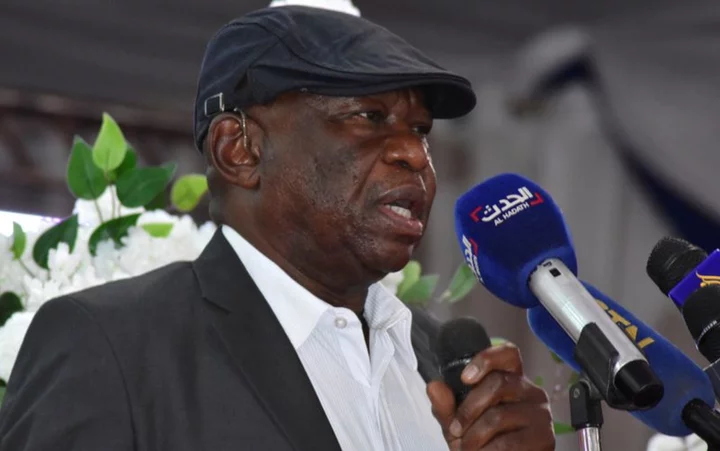KHARTOUM Residents of Sudan's South Kordofan State reported mobilisation by a large rebel force on Thursday, raising fear that internal conflict could spread in the country's southern regions.
The rebel force, the SPLM-N, is led by Abdelaziz al-Hilu, and is estimated to contain tens of thousands of men as well as heavy weaponry.
It is unclear what position Hilu might take in the conflict that erupted in the capital Khartoum on April 15 between the army and the paramilitary Rapid Support Forces (RSF), but its mobilisation raised fears of clashes, residents said.
SPLM-N forces had moved into several army camps around Kadugli, the capital of South Kordofan, prompting the army to reinforce its positions, they said, adding that the RSF had closed the road between Kadugli and El Obeid to the north, depriving the city of supplies.
In past months there had been skirmishes between the SPLM-N and the RSF.
In the capital Khartoum, where fighting has been concentrated, residents reported sporadic battles and air strikes on Thursday.
Those included clashes in the south of Khartoum around a military complex containing weapons factories where the army has been trying to regain control from its paramilitary rivals.
Reuters was not able to independently confirm the accounts.
The war has triggered a major humanitarian crisis that threatens to destabilise the region. More than 1.4 million people have been displaced within Sudan and a further 476,800 have fled into neighbouring countries.
LAWYER KILLED
Beyond the capital, unrest has flared in the western region of Darfur, already struggling with the impact of two decades of conflict and displacement.
In El Geneina in West Darfur, the city worst hit by recent violence, a lawyer who had worked on the cases of displaced people and eight members of his family were killed in an attack on their house earlier this week according to the Darfur Bar Association, a group that monitors the conflict.
A medical union reported that a new wave of attacks had begun on Wednesday in the city, which has been cut off from communications for several weeks.
Fighting in Khartoum and the adjoining cities of Bahri and Omdurman has intensified since a 12-day ceasefire between the army and RSF formally expired on June 3.
The recent ceasefire, brokered by Saudi Arabia and the United States at talks in Jeddah, had been repeatedly violated, but had allowed for the delivery of limited amounts of humanitarian aid.
Mediators told Reuters that a proposal had been put forward at indirect consultations in Jeddah for a 24-hour truce that would be more closely monitored than previous truces.
A U.S. State Department spokesman said on Wednesday said there had been no formal resumption of talks in Jeddah but Washington remained "deeply engaged" with the two sides.
The conflict in Sudan derailed the launch of a transition towards civilian rule four years after a popular uprising ousted strongman President Omar al-Bashir.
The army and RSF, which together staged a coup in 2021, fell out over the chain of command and military restructuring plans under the transition.
(Reporting by Khalid Abdelaziz and Nafisa Eltahir; Writing by Aidan Lewis; editing by Diane Craft)

